MUMBAI: When
Nemanja Vidic arrived at Old Trafford in the January transfer window of 2006, he found a club who, by their own high standards, were going through a rather ordinary phase under legendary manager Alex Ferguson.
That would soon change, and how, as the Red Devils, bolstered by their new rock-solid defensive pairing of Vidic and
Rio Ferdinand, regained their stranglehold on English football’s top flight by winning the title in each of the following three seasons.
In an exclusive interaction with TOI, the former Serbian international, in town to attend The Football Movement, hosted by Premier League and India On Track, spoke on a range of topics including why he believes his old club have a realistic shot at Champions League glory this season due to the Jose Mourinho factor.
ALSO READ:
Sanchez will help Manchester United's CL campaign: Vidic
Excerpts:
Did you have a chance to watch the first-leg between Man United and Sevilla? Is 0-0 a tricky scoreline to take back to Old Trafford?
Unfortunately I arrived at 2.30 am so I couldn’t watch. But I saw the result and the team United played. I saw the reaction of the media. But in the end, I think 0-0 is a good result for Man United. I understand it wasn’t their best game but at this stage, in this competition, it’s most important when you play such games that you don’t panic.
You were someone who was entrusted with responsibility very early in your career. You were made captain of Red Star Belgrade at just 21, an age many would consider fairly young to lead a big European club...
To be fair, I was fortunate I started playing for Red Star Belgrade when I was 15. Even in the youth system, we have this mentality that every game you go, you have to win. So I had that winning mentality since my early ages. When I started playing for the first team, because I was used to this kind of mentality of winning every match, for me it was normal. I was angry if we lost the match or if I was playing bad, so I think that’s what managers saw in me as a leader. In any team, you always have to have a few leaders.
And we were fortunate that at
Manchester United we had a lot of leaders. So it was easy for me to be the captain of the team, if you look at the players we had at the time (smiles).
ALSO READ:
De Gea stars as Manchester United settle for Sevilla draw
What happens when you have too many leaders?
That can be a problem but that’s why he is Alex Ferguson. He didn’t see the differences in players. He respected every player. Every player had a role. I’ll give you an example – Darren Fletcher. He didn’t play any game for two-three months (in the 2008-09 season). And of course, he got a bit anxious and asked himself ‘why am I not playing, what’s wrong?’ He was sad, in training you could see he was down. Then came some big games - Arsenal, Chelsea. Fletcher played against Arsenal, he played against Chelsea. So (Ferguson) showed Darren Fletcher how important he was in the team. It didn’t matter if your name was Giggs, Vidic or Rio Ferdinand.
Apparently there was a nasty incident before you left Red Star in 2004, where your car was destroyed by a notorious hooligan after you reportedly appeared in a fashion shoot with the captain of Partizan - your fierce rivals…
My own car was never crushed. But at the time, I had just started playing for Red Star Belgrade. I was not in the first team, just part of the squad. The team had a bad year and the fans came to the stadium to watch our training. So it was kind of tense. We didn’t perform well, they weren’t happy with how we played in the matches. It wasn’t about just the results but about the commitment we gave on the pitch. So they expressed themselves in a way that was not right. There were issues with cars, some graffiti and other things.
ALSO READ:
Too soon to judge United's Champions League chances: Mourinho
Was the experience something of an eye-opener as to the crazy length fans are capable of going to?
In different countries, there are different mentalities. The Serbian people are very passionate. We give you the crazy love, but we are very disappointed if you don’t give that love back.
I played in Russia, in Moscow where there’s a different mentality and then I came to England where I never had any issues with the fans. One of the first things I remember after coming to England, we were playing against Blackburn. We lost the match 4-3 and I was very disappointed. It was also a bad season for the club. We didn’t win any trophy. After we lost the match, I put my head down and was walking to the tunnel. Then I heard someone calling me from the back. I look and say ‘what?’ ‘Come here’ the voice said. I see the group of players in the centre going to the fans to give them a clap. I was like ‘I’m expecting it’s going to be whistles now. But no, they clap and still show their support for the players and the club. They support the club in the good and bad times so that’s what makes English football special - the fans.
Did you get any sense that the tide was going to turn in United’s favour shortly after you arrived in 2006?
When I look at it now, I probably had a different way of thinking then. I felt they (Chelsea) won two years in a row, but at the same time we had terrific players. I asked myself if we could win. Not many players had won many trophies. Ok - Ryan Giggs, Paul Scholes, Gary Neville - they did win, but we had a lot of young players who were waiting to grow.
Now, when I look back, that was probably the plan. We had three to four experienced players but another set of youngsters like Rooney, Ronaldo, Patrice Evra and myself. It was a mixed bag of youth and experience. So the problem at that time was to make these players believe we could win. So when we won the first title together, there was so much confidence in the team. After that, we were not looking at other teams and wondering what the results would be.
What do you make of Mourinho’s methods? He’s had to face some criticism...
(Laughs) I don’t know, because I never worked with Jose Mourinho. Whatever I am seeing, I am seeing from outside. Obviously, he is not going to share with others what he’s thinking and what his plans are. I think we were going through transition after Ferguson retired. We had Moyes, we had Louis van Gaal.
It’s difficult after someone as successful as Ferguson, who managed the team for about 25 years. It’s very difficult for the new manager. But, I think now is the time that we have to win a major. Mourinho knows what the expectations are. He’s been in this position before in Spain, in Italy and I believe he can bring us to the final of the Champions League. Next year United should challenge for the title.
But do you believe United are going to give Mourinho that kind of time, given the pressures that managers at top clubs are under these days?
I think the extension of Mourinho’s contract shows the path that the club has chosen to take. If you look at the managers now, the Premier league has the best of them. One has to ask, what else can you bring to replace coaches like Mourinho, Pochettino, Klopp or Guardiola. So it’s kind of, you have to give them the opportunity. You have to give them the chance and time for them to achieve what they want because you can’t achieve everything in one year. You can ruin a team in one year but to build something takes time.
Recently former Man United star Eric Cantona said though he admired Mourinho, he preferred Guardiola’s philosophy of football. Your thoughts?
I think a lot of players have different opinions. We cannot judge anyone by one opinion. I mean if you ask now, how many countries has Mourinho managed in? Italy, Spain, Portugal and England. He has won a lot of titles. Guardiola too has had a successful career at Barcelona, Bayern and now at City. So it’s like comparing Ronaldo and Messi. They are different and so are their thoughts towards football.
Going back to the 2008 Champions League final, what were your thoughts as Chelsea captain John Terry stepped up to the spot?
(Laughs) I was thinking about nothing. If you ask me now, I was like empty. We played 90 minutes and we had extra time. I remember Ronaldo took the first penalty (actually third) and he missed. We felt ‘oh our best penalty shooter has missed and that’s not good’. It’s kind of luck. You wait and see what’s going to happen. Because at that time, when we prepared the list of the players who were going to take the shots, the boss said to three to four players that you are going to shoot. But he did not tell us the sequence. Maybe he never thought that it’s going to five shots. He probably thought that it will get over in three shots (laughs). He was always positive. That was the best thing about him.
I remember Ryan Giggs was next to me. I was asking him, ‘who’s going to shoot next?’ And I was thinking, ‘hope it’s you!’ But, really, I was empty at that time. Then we eventually won and the rest is history.
Has the role of a central defender changed? You see defenders having to play the ball a lot more...
The defenders have to be able to play from the back. That’s the modern game now. You have to adapt. You have to be tough too. It’s difficult to combine both. You have Chris Smalling, he’s tough, but you have to play from the back. Football is changing. You have to try to improve the overall quality of football, the organisation, the stadiums, everything you know. Football is going forward.
You retired from the national team on a sour note with criticism from fans for missing a crucial penalty. How difficult a phase was that?
I played for more than 10 years for the national team. I managed to play in two World Cups. I didn’t manage to go to the European Championship. That was the sad moment for me. Actually the missed penalty was for the qualification to the Euros. I missed the penalty, yes. Of course I took responsibility. What I don’t like is when people question my commitment.
Throughout my career, I’ve given 100 percent. The reason why I left the national team is I felt it was time to give someone else the chance.
Are players under increasing scrutiny today because of social media?
Pressure is normal, especially in these times of social media. By the way, I don’t have social media because I want my privacy, I want my life you know. I like to do what I know to do and I try to do my best. I don’t try to be something else. That’s why I don’t like social media. I think the players are under huge pressure because of social media. Sometimes I think they put themselves under more pressure than the media actually puts them under. The Premier League and PFA should teach the players how to use social media because it can affect their lives, how they play and have long term problems, not only short term problems.
The popularity of football in Asia has attracted lot of players from Latin America and Europe. Did you receive any offers from ISL clubs?
I did not receive any offers but I did my pro license course with David James. He was in India before and he told me a lot about it. There is Dimitar Berbatov, Wes Brown, there was also Bojan Djordjic (former Chennaiyin player). So I know that Indian football has grown in the last few years.
Players who are at the end of their careers have some knowledge and some experience which they can transfer to the young generation which will help them grow.





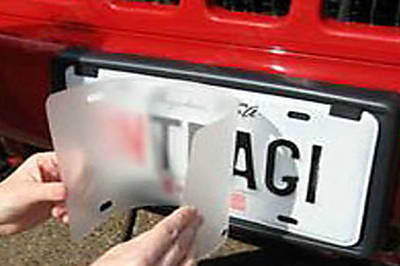

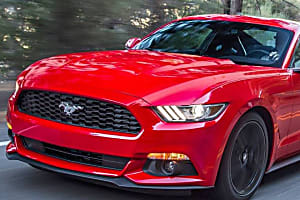





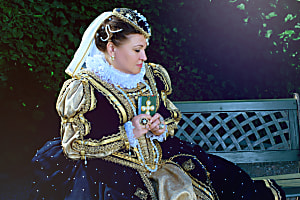
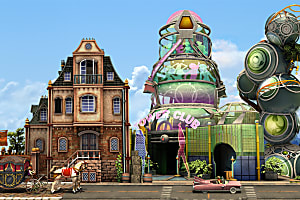
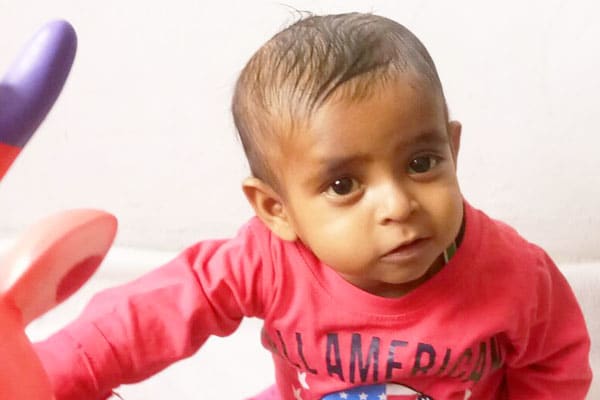



All Comments ()+^ Back to Top
Refrain from posting comments that are obscene, defamatory or inflammatory, and do not indulge in personal attacks, name calling or inciting hatred against any community. Help us delete comments that do not follow these guidelines by marking them offensive. Let's work together to keep the conversation civil.
HIDE